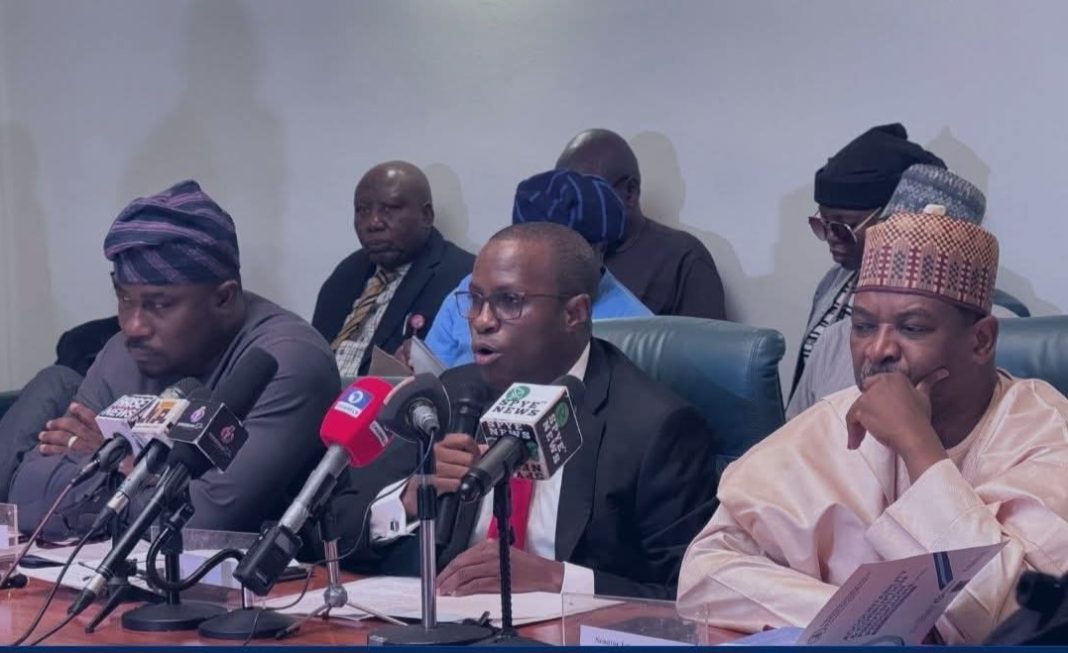The Independent Corrupt Practices and Other Related Offences Commission (ICPC) has introduced a comprehensive framework aimed at combating corruption and fostering fiscal transparency in Nigeria’s local government administration.

This initiative, encapsulated within the Accountability and Corruption Prevention Programme for Local Governments in Nigeria (ACPP-LG), was officially launched on Thursday, marking a significant milestone in governance reform.
In his keynote address, ICPC Chairman, Dr. Musa Adamu Aliyu, SAN, underscored the urgency of addressing corruption at the grassroots level. He noted that the ACPP-LG initiative is designed to reinforce financial accountability and efficiency, particularly in light of a Supreme Court ruling affirming financial autonomy for local governments.
“The ICPC is resolutely committed to ensuring adherence to anti-corruption laws while fostering a culture of transparency and accountability,” Dr. Aliyu stated.
“Through the ACPP-LG, we seek to fortify financial management, governance structures, and proactive information disclosure in local councils.”
To effectively realize these objectives, the ICPC has identified five critical areas of intervention; Establishing mechanisms for clear and accountable financial transactions within local government structures, Promoting fair and competitive procurement practices to curb mismanagement and corruption, Enhancing ethical standards and professionalism within local government staffing.
Other area are; Strengthening oversight mechanisms to detect and deter fraudulent activities, Encouraging public participation in governance through information dissemination and feedback mechanisms.
Dr. Aliyu emphasized that these reforms would enhance governance, optimize service delivery, and restore public confidence in local government institutions. He further disclosed that the ICPC would leverage its investigative, prosecutorial, and regulatory functions to ensure strict compliance with anti-corruption measures. This would include periodic audits, legislative enforcement, and oversight mechanisms to address lapses in governance.

The launch of the ACPP-LG has garnered significant backing from key governmental institutions. Senator Emmanuel Udende, Chairman of the Senate Committee on Anti-Corruption and Financial Crimes, represented by Senator Yaro Anthony Siyako described the initiative as a timely intervention to enhance transparency in local governance.
“The National Assembly remains committed to enacting and strengthening legislation that promotes good governance. We will continue to support policies that ensure prudent and transparent use of resources allocated to local governments.” Senator Siyako stated
He further asserted that the Senate Committee on Anti-Corruption and Financial Crimes would maintain rigorous oversight to ensure that local government funds translate into tangible development outcomes.
Similarly, Prince Kayode Moshood Akiolu, Chairman of the House of Representatives Committee on Anti-Corruption, highlighted financial dependence on state governments as a historical impediment to local government effectiveness.
However, he affirmed that the Supreme Court’s ruling on financial autonomy would rectify this challenge, provided corruption is adequately tackled.
“The greatest threat to the efficiency of local governments remains corruption,” Akiolu noted. “This is why the ICPC’s rollout of the ACPP-LG is a pivotal step toward fostering a culture of accountability and ethical governance.”
The ICPC Chairman appealed to state governments to facilitate the smooth implementation of the ACPP-LG without administrative bottlenecks. He also stressed the importance of leveraging technology and social media to engage citizens in the fight against corruption, thereby ensuring grassroots participation in governance.
Endorsing the initiative, Attorney-General of the Federation, Prince Lateef Fagbemi, SAN, represented by Director of Public Prosecution, M.B Abubakar—alongside other key stakeholders, reiterated the alignment of ACPP-LG with the National Anti-Corruption Strategy (NACS). They emphasized that the initiative would significantly enhance transparency, accountability, and governance at the local level.



